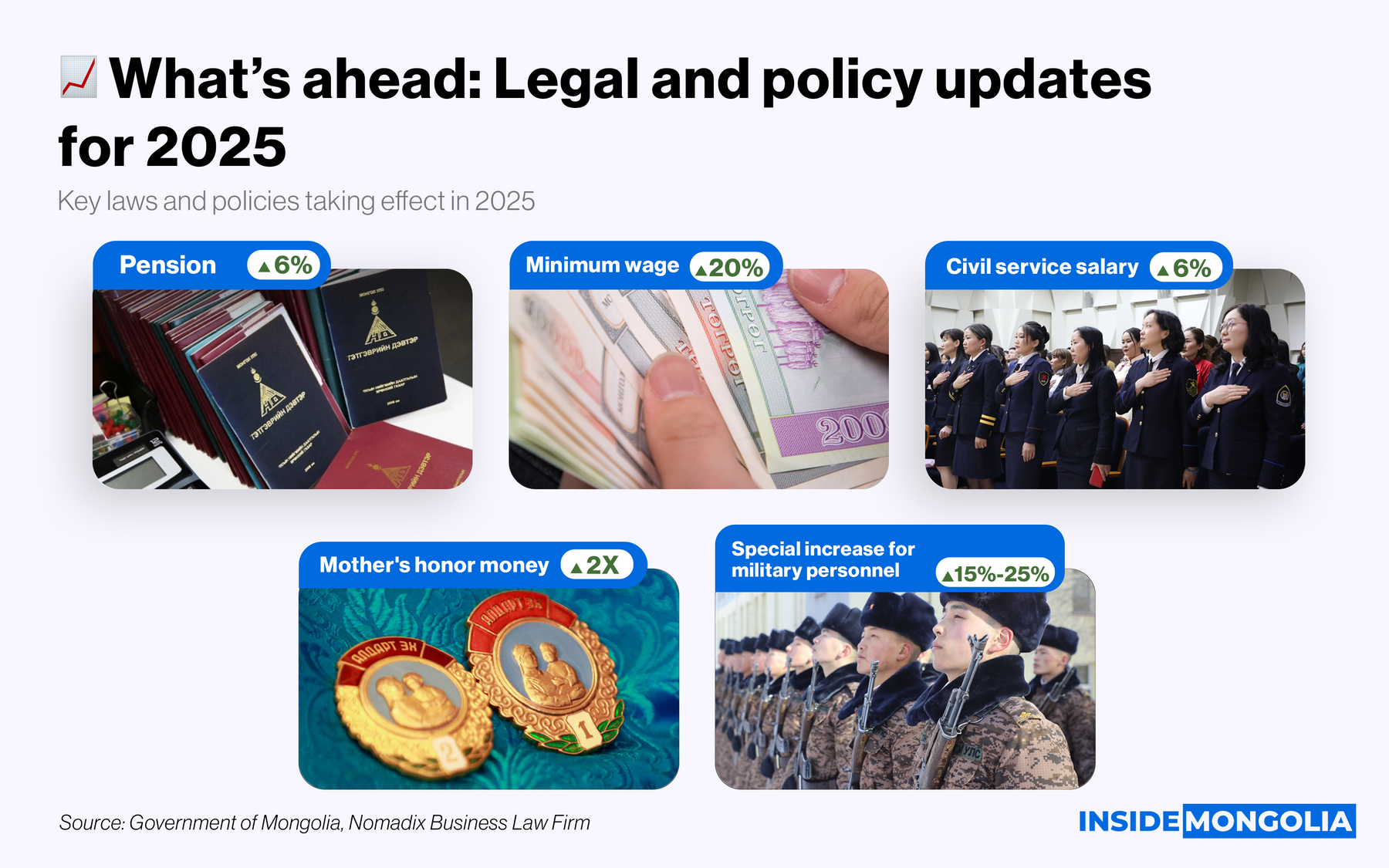New Laws for the New Year
Khulan M.
January 6, 2025
January 6, 2025

2025 begins with a series of notable increases, including adjustments to the minimum wage, pensions, salaries of civil servants, and special increments for armed forces and border guards.
🆙 Increases on the Horizon
The authorities uphold their electoral promise to enhance pensions and benefits. For instance, pensions increased by 6%, the Mother’s honor money doubled, the civil servants' salaries rose by 6%, and the minimum wage significantly boosted by 20%.
- Pensions Tied to Inflation: Starting January 1st, 2025, pensions rise annually in step with inflation. While the government loudly champions pension fund reform and the rollout of a multi-layered pension system in 2024, the reality paints a different picture, cash increases surge ahead, leaving meaningful reforms trailing behind.
- A Financial Burden: The 6% pension increase necessitates an additional ₮297.4 billion from the already overburdened Social Security Fund. For a long time, pensions alone have consumed over 80% of the fund's total expenditures, and their growing reliance on government budget support pushes the fund closer to the brink of collapse.
- Minimum Wage Milestone: Furthermore, the minimum wage increases to ₮4,715 per hour or ₮792,000 per month, effective April 1. This marks the first time in history it rises for 3 consecutive years. Click HERE to explore the positive and negative impacts of this significant change.
🔑 Other Laws
Furthermore, several new laws across various sectors, including financial services for herders, benefits for elders, the Mongolian language, and organic production, are now in effect.
- Law on Herders: The Law on Herders, adopted in 2024, introduces Chapter 12, which enables the provision of preferential loans to herders, and aims to enhance their financial stability. Previously, herders faced significant challenges in accessing loans and favorable terms. However, under the new law, herders who meet specific criteria can now access preferential and highly preferential loans.
- Law on the Elderly: Amendments to the Law on the Elderly bring new benefits, such as free public transport, medical equipment discounts, and fuel vouchers. The most important change is implementing the criminal code, which prohibits third parties from misusing elders' pensions and benefits. Those who violate this can face penalties, including imprisonment, ensuring stronger protection for the elderly.
- Law on the Mongolian Language: Starting from January 1, 2025, Mongolia officially adopts both Cyrillic and traditional Mongolian scripts for legal papers and official documents. This dual-script policy requires government employees to maintain official documents in both scripts, ensuring accessibility and preserving the nation's linguistic heritage.
- Organic Food Law: The newly adopted Organic Food Law builds on the 2016 law, enabling the state to financially and non-financially support organic producers. It defines organic production, outlines requirements and responsibilities for producers, and introduces new certification processes, labels, and trade incentives.
2025 brings reforms aimed at supporting the workforce and herders while addressing structural challenges. However, effective implementation and sustainable funding remain critical to achieving these goals.
Comment